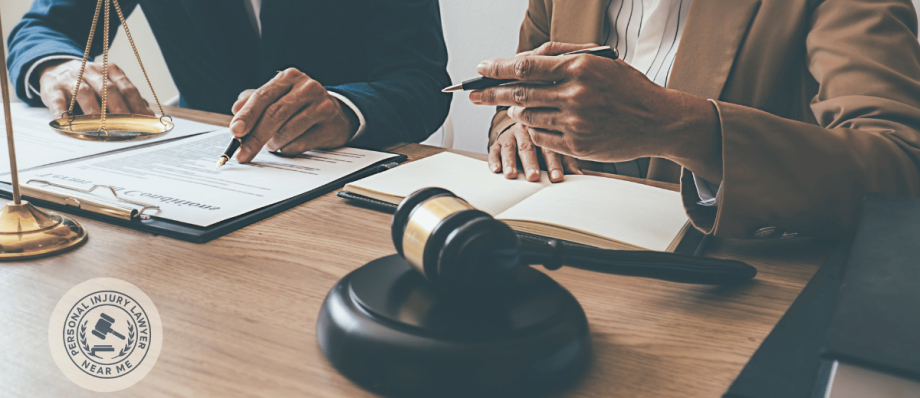When life throws an unexpected accident your way—a car crash, a slip and fall, or a workplace injury—the aftermath can feel overwhelming. Medical bills pile up, insurance companies push back, and you’re left wondering how to recover physically and financially. That’s where a personal injury lawyer steps in. But what exactly do they do, and how can they help you navigate the legal maze?
In this guide, we’ll discuss the role of a personal injury attorney, the types of cases they handle, and why hiring one could mean the difference between a denied claim and fair compensation.
The Core Role of a Personal Injury Lawyer
A personal injury lawyer specializes in representing individuals who have been harmed by someone else’s negligence or intentional actions. Their job is to ensure victims receive compensation for medical expenses, lost wages, pain and suffering, and other damages.
Key Responsibilities:
- Case Evaluation & Investigation
- They review medical records, police reports, and witness statements.
- Work with accident reconstruction experts if needed.
- Negotiating with Insurance Companies
- Insurers often lowball settlements—your lawyer fights for a fair payout.
- Filing Lawsuits & Litigation
- If negotiations fail, they take the case to court.
- Maximizing Compensation
- They assess all damages, including future medical costs and emotional distress.
| Task | Why It Matters |
|---|---|
| Gathering Evidence | Strengthens your claim with solid proof of negligence. |
| Handling Legal Deadlines | Miss a filing deadline, and you lose your right to sue. |
| Calculating Full Damages | Ensures you’re compensated for all losses, not just immediate bills. |
Common Types of Personal Injury Cases
Not all accidents lead to lawsuits, but these are the most common scenarios where a personal injury attorney becomes essential:
1. Car Accidents
- Whether a rear-end collision or a drunk driving crash, a lawyer helps prove fault and secure compensation beyond what insurance offers.
2. Slip and Fall Incidents
- Property owners can be liable for unsafe conditions (wet floors, broken stairs).
3. Medical Malpractice
- If a doctor’s error caused harm, a lawyer helps navigate complex medical-legal claims.
4. Workplace Injuries
- While workers’ comp covers some injuries, third-party claims (e.g., defective equipment) may require a lawsuit.
5. Product Liability
- Defective products—from faulty airbags to dangerous pharmaceuticals—can lead to injury claims.
For more details on how these cases work, check out the American Bar Association’s guide on personal injury law.
Why You Need a Personal Injury Lawyer
1. Insurance Companies Aren’t on Your Side
- Adjusters aim to minimize payouts. A skilled lawyer knows their tactics and counters them effectively.
2. Proving Fault Isn’t Always Easy
- Did the other driver run a red light? Was the store negligent in cleaning up a spill? Evidence must be airtight.
3. Legal Deadlines Are Strict
- Each state has a statute of limitations (usually 2-3 years). Miss it, and your case is over.
4. Maximizing Your Settlement
- Without a lawyer, you might accept a lowball offer. Attorneys ensure all damages—including future care—are considered.
How to Choose the Right Personal Injury Attorney
Not all lawyers are created equal. Here’s what to look for:
✅ Experience in Similar Cases – A car accident specialist may not be the best for medical malpractice.
✅ Track Record of Success – Look for past settlements and trial wins.
✅ Clear Fee Structure – Most work on a contingency fee (you pay only if they win).
✅ Strong Communication – You want updates, not radio silence.
For a deeper dive, the National Association of Personal Injury Lawyers offers resources on finding the right attorney.
Final Thoughts: Is Hiring a Lawyer Worth It?
If you’ve been injured due to someone else’s actions, the answer is almost always yes. A personal injury lawyer doesn’t just file paperwork—they level the playing field against corporations, insurers, and negligent parties.
Need help with a claim? Consult a trusted attorney today to discuss your options. The right legal advocate could mean the difference between struggle and stability.
FAQs
Q: How much does a personal injury lawyer cost?
A: Most work on contingency—typically 30-40% of your settlement, but nothing upfront.
Q: How long do personal injury cases take?
A: Settlements can take months; complex cases may take years if they go to trial.
Q: What if I’m partly at fault?
A: Many states follow comparative negligence rules, meaning you can recover partial damages.
For more answers, visit Justia’s personal injury FAQ.
Understanding what a personal injury lawyer does makes you better equipped to make informed decisions after an accident. Don’t navigate this alone—legal expertise can be your strongest ally in securing justice.



